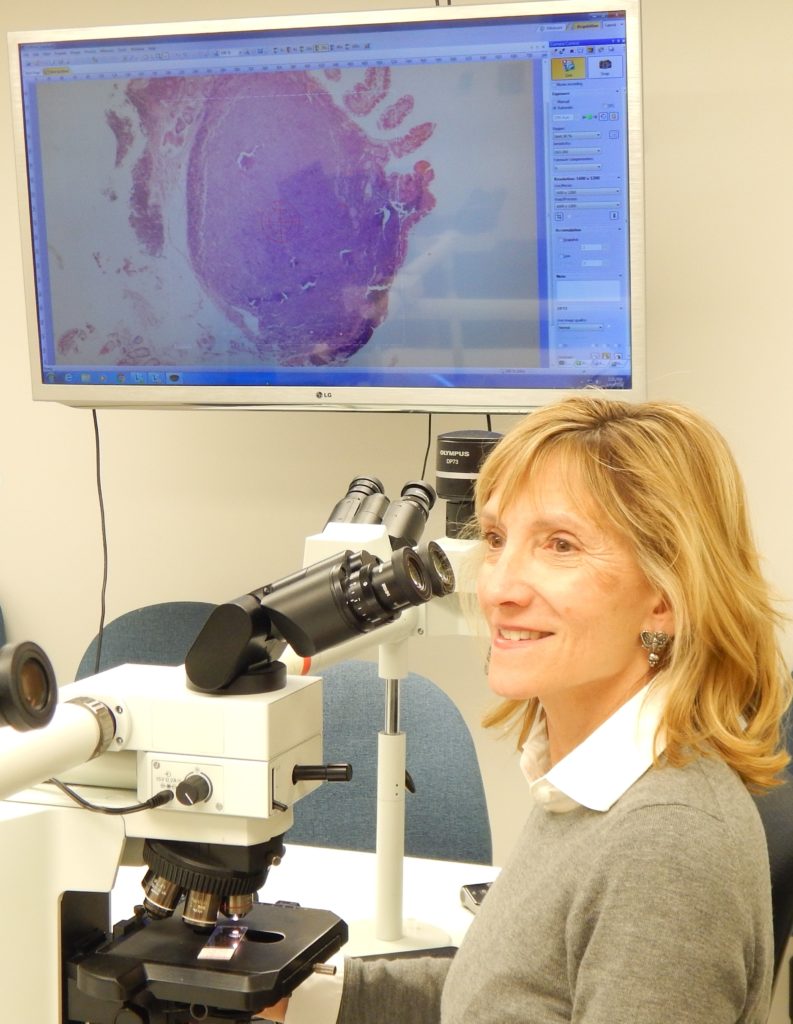Editor’s note: For up-to-the minute insights from the nation’s first movers and early adopters in the field of precision medicine, the Precision Medicine Institute Symposium 2019 is taking place Thursday and Friday, May 2-3, at the Sheraton Hotel in New Orleans. Visit https://www.precisionmedicineforhospitals.com to learn more and to register.
“The end goal at Vanderbilt University Medical Center (VUMC) is providing better care to our patients,” says Mary M. Zutter, MD, Vice President for Integrative Diagnostics and Professor of Pathology, Microbiology, and Immunology at VUMC, about advancing healthcare with quality precision medicine.
For her sophomore presentation at the Precision Medicine Institute Symposium, Zutter will discuss Vanderbilt’s lessons learned in assembling resources, selecting disease targets, and engaging physicians in efforts toward that aspiration.
Setting the Groundwork
The first step in executing an ambitious clinical endeavor is establishing institutional support, Zutter says. “It doesn’t happen if senior leadership will not strongly support the goals and the processes, providing necessary resources and engaging with faculty leadership to make sure that the goal is reached.”
Major resources that are needed include state-of-the-art technology, including informatics, research, testing and validation, and communication.

A physician-scientist with clinical expertise in pathology, molecular pathology, and hematopathology, Mary Zutter, MD (above), was part of a group of prominent researchers invited to a White House strategy meeting shortly before former Vice President Joe Biden’s call for a moonshot to cure cancer. At the 2016 meeting, Zutter and colleagues asked their Washington hosts to enhance federal funding of basic scientific research, as well as encourage the Centers for Medicare and Medicaid Services to reimburse for genetic testing. (Photo copyright: Vanderbilt University Medical Center)
To engage physicians who will ultimately incorporate genetic discoveries into their treatment plans, data is a must. “We’re academic physicians, and physicians learn and can be influenced by data,” Zutter says. “So, we need to have both the best evidence-based information to drive our processes and decisions, as well as our own internal data to support change management for our physicians.”
New Tools for Old Diseases
As far as what diseases to target, Zutter and her team have focused on the conditions for which patients have been seeking treatment at Vanderbilt for decades, such as cancer, heart disease, and pediatric genetic diseases.
“We know our patient population,” she says. Tennessee, for example, has disproportionately high rates of smoking and obesity, she notes. Meanwhile, Vanderbilt is home to one of the largest transplant centers in the Southeast, across all diseases, with particularly high-quality rankings in bone marrow transplants.
“We are focused on the patients who come to Vanderbilt,” she says. “And we recognize that we are responsible for taking care of the people in our area, so we focus on the major diseases of the region.”
When it comes to addressing these diseases, Vanderbilt is striving to “move past ‘just’ precision medicine and into predictive medicine,” Zutter says. For example, work is underway to expand and scale its pharmacogenomics program. “We begin our work with drugs that are prescribed frequently, and that have impactful warnings associated with them,” she says. Ultimately, the program should be able to identify patients who may be prescribed certain drugs in the near future, and offer just-in-time clinical decision support regarding how and whether to prescribe those drugs, she explains.
Overall, Zutter sounds confident that VUMC is moving in the right direction. “The integration of people, process, and technology—that’s really the combination that makes this work doable and effective,” she says.
—Debra A. Shute
Related Information:
Register for the Precision Medicine Institute Symposium 2019
Zutter Takes Part in Cancer Strategy Meeting at White House
Pharmacogenomics to Eventually Touch Every Patient, Everywhere, Expert Says
